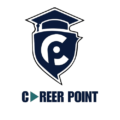FULL STACK DEVELOPMENT
Course Overview
The Full Stack Development course at Careerpoint is designed to provide you with a comprehensive understanding of both front-end and back-end development. This course covers everything from building user interfaces to developing server-side applications, equipping you with the skills to create robust and dynamic web applications.
Course Curriculum
Introduction to Full Stack Development
- Overview of full stack development and its importance.
- Understanding the roles and responsibilities of a full stack developer.
- Introduction to the technology stack: Front-end, Back-end, and Database.
- Setting up the development environment and tools.
Front-End Development
- HTML and CSS
- Basics of HTML for structuring web content.
- Styling with CSS: Layouts, positioning, and responsive design.
- Understanding CSS frameworks: Bootstrap, Tailwind CSS.
- JavaScript
- Basics of JavaScript programming: Variables, functions, and control structures.
- DOM manipulation and event handling.
- Introduction to modern JavaScript features (ES6+).
- Front-End Frameworks
- Working with front-end frameworks: React, Angular, or Vue.js.
- Building and managing components.
- State management and routing.
- HTML and CSS
Back-End Development
- Server-Side Programming
- Introduction to server-side languages: Node.js, Python, Ruby, Java.
- Understanding RESTful APIs and web services.
- Building and managing server-side applications.
- Databases
- Introduction to databases: SQL and NoSQL.
- Working with relational databases (MySQL, PostgreSQL).
- Using NoSQL databases (MongoDB).
- Implementing CRUD operations and database design.
- Authentication and Authorization
- Implementing user authentication and session management.
- Understanding OAuth, JWT, and other authentication mechanisms.
- Securing web applications and protecting user data.
- Server-Side Programming
Version Control and Collaboration
- Introduction to version control systems: Git and GitHub.
- Basic Git commands and workflows: Commits, branches, merges.
- Collaborating on projects using GitHub.
- Understanding pull requests and code reviews.
DevOps and Deployment
- Introduction to DevOps principles and practices.
- Understanding deployment pipelines and CI/CD.
- Deploying applications to cloud platforms: AWS, Azure, Heroku.
- Managing and scaling applications in production environments.
Web Application Architecture
- Understanding client-server architecture and design patterns.
- Implementing MVC (Model-View-Controller) architecture.
- Working with microservices and serverless architectures.
- Integrating third-party APIs and services.
Testing and Debugging
- Introduction to testing methodologies: Unit testing, integration testing.
- Using testing frameworks: Jest, Mocha, Jasmine.
- Debugging techniques and tools for front-end and back-end code.
- Ensuring code quality and reliability.
Performance Optimization
- Techniques for optimizing front-end performance: Lazy loading, minification.
- Improving back-end performance: Caching, load balancing.
- Analyzing and optimizing database queries.
- Monitoring and profiling application performance.
Project Management and Agile Methodologies
- Introduction to Agile methodologies and Scrum framework.
- Managing project requirements and timelines.
- Working with project management tools: Jira, Trello.
- Collaborating in development teams and handling project workflows.
Capstone Project
- A hands-on project where you’ll build a complete full stack application from scratch.
- Apply all the skills learned during the course.
- Receive feedback from peers and instructors to refine your project.
Why Choose Careerpoint for Full Stack Development?
- Experienced Instructors: Learn from seasoned full stack developers with industry experience.
- Hands-On Learning: Engage in practical labs and real-world projects.
- Comprehensive Coverage: From front-end to back-end, our course covers all aspects of full stack development.
- Flexible Learning Options: Choose between on-campus and online classes to fit your schedule.
- Career Support: Access our career services for help with job placements, resume building, and interview preparation.
Who Should Enroll?
- Aspiring Full Stack Developers: Individuals looking to start a career in web development.
- Front-End and Back-End Developers: Professionals wanting to expand their skills to full stack development.
- Software Engineers: Those interested in developing a comprehensive understanding of web applications.
- Tech Enthusiasts: Individuals passionate about building and deploying web applications.
Course Duration
- Full-Time Track: 16 weeks of immersive training.
- Part-Time Track: 32 weeks for those needing a more flexible schedule.
How to Enroll
Ready to become a full stack developer and build dynamic web applications? Enroll Now to secure your spot in our upcoming course. Limited seats available to ensure personalized attention.
Ready to Start Your Career?
Let’s bring your ideas to life. Enroll today to have a bright future.
